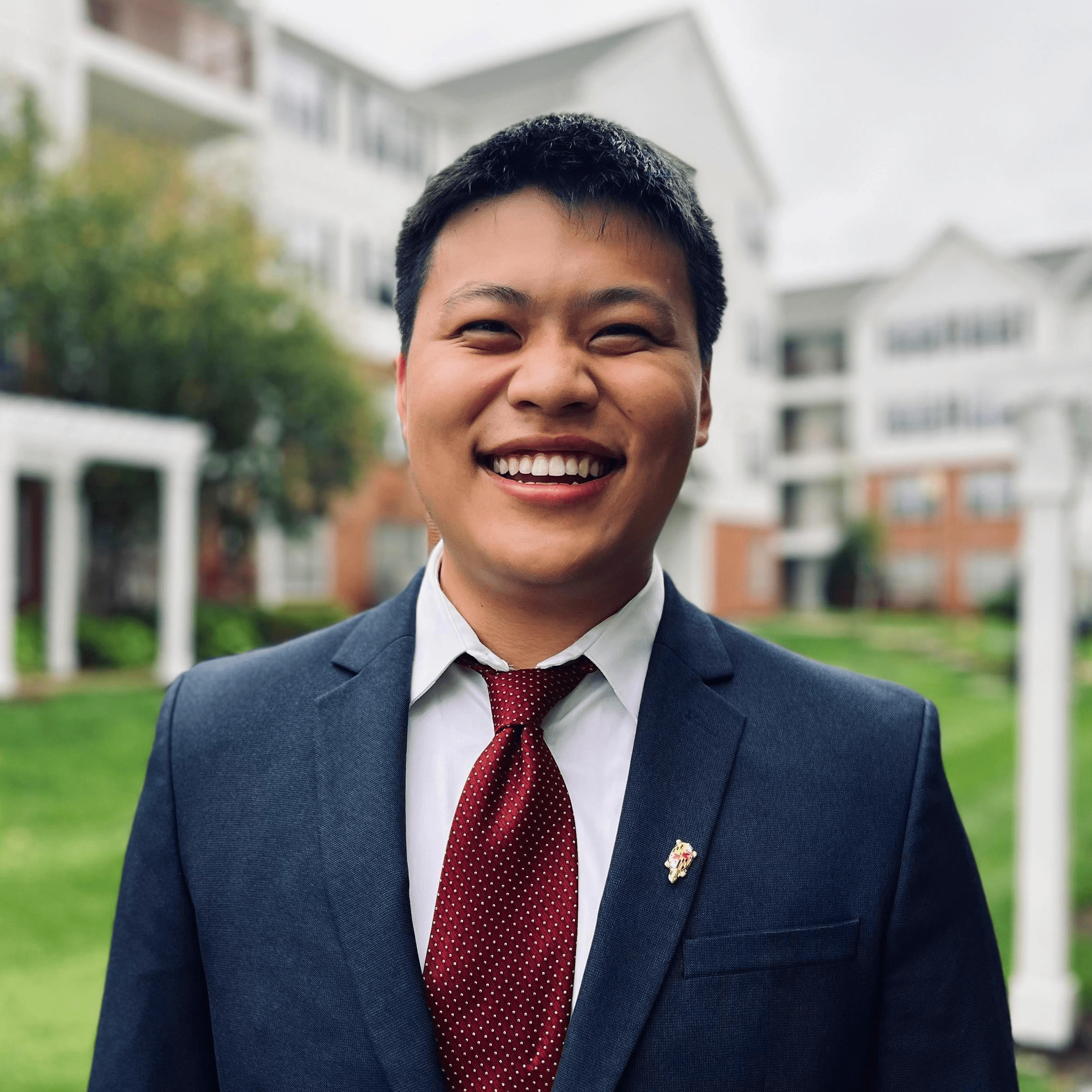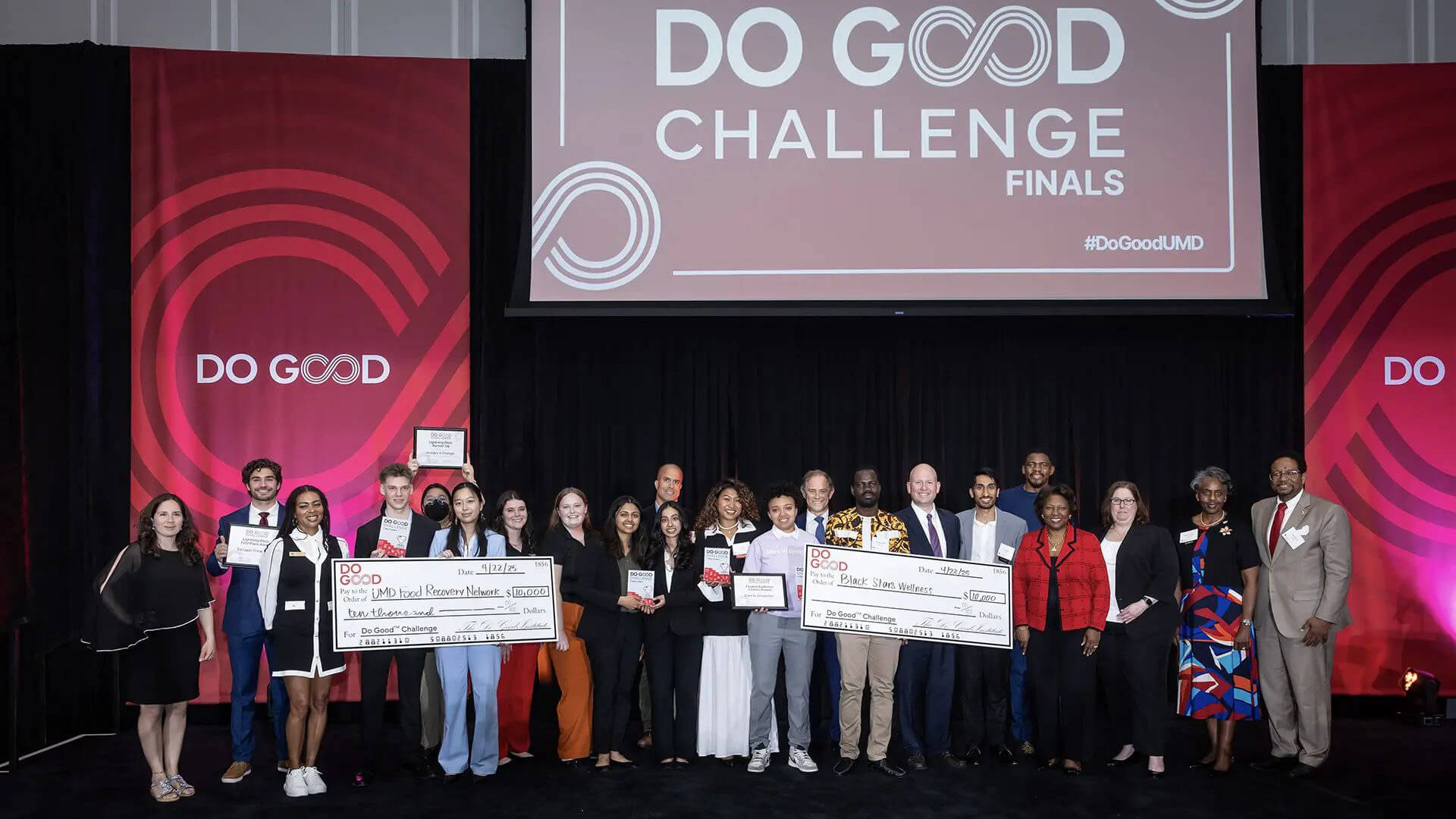
Kevin Tu is a senior earning dual degrees in biological sciences: physiology and neurobiology and economics. Kevin is interested in connecting the fields of entrepreneurship and health, and aims to pursue a career in academic medicine. Kevin, with the combined support of Cecilia and his team at Combating Overdoses in Rural Areas (CORA), won the first place Project prize at the 2022 Do Good Challenge; and in 2023 Kevin took home the first place Venture prize at the Do Good Challenge for his work with Sustainabli. Kevin was also recently named a 2023 Churchill Scholar, and will receive full funding to pursue a one-year master’s degree at the University of Cambridge in the United Kingdom. The following article was written by Kevin, along with the support of his teammate Cecilia Hu, 2023-2024 chapter president of CORA.
We realized that the people we served were at the heart of our organization. The board and I all agreed that the best part of CORA was seeing the impact that we were leaving on local communities.Kevin Tu '22 and '23 Do Good Challenge Winner
I grew up in the rural town of Greenfield, Indiana. My first memories consisted of playing in open fields and taking weekend trips to Indianapolis. Medical care wasn’t the easiest to access back then, and the closest substance use clinics were 30 miles away in Indianapolis. This inadequate access to healthcare contributed to the first “wave” of the opioid epidemic, when prescription opioids were flooding the market. These two factors enabled drug abuse and addiction to flourish unchecked. Many families in Greenfield were affected, including my best friend who was orphaned after her mother suffered a fatal overdose.
Fast forward 15 years: the COVID-19 pandemic hit and overdose rates spiked. When I looked closer at the numbers, I learned that rural counties in Maryland were experiencing a 50-130 percent increase in fatal overdoses–which translated to a 9.4 percent state-wide increase from 1,085 deaths in 2019 to 1,187 deaths in 2020. When I saw the same things happening in Maryland that I witnessed in Indiana I knew I wanted to do something.
This led me to found CORA at UMD during the summer of 2020, and we started partnering with local nonprofits, health departments and schools to create and share drug education materials. Everything we developed was tailored specifically to each community we partnered with based on the problems they were facing. We created presentations and brochures on identifying substance use disorders, which were shared around the state as resources for parents and teens through local PTSAs. We created guided wellness exercises for first responders experiencing compassion fatigue in Harford County. And we wrote an interactive K-5 children’s book to help teachers and parents teach their kids about the dangers of opioids and drug abuse. We initially met some resistance earning the trust of these rural communities, but we were able to gain credibility through gracious community leaders who vouched for us.
When the nation’s lockdown ended, we created a harm reduction team to provide overdose response training and distribute naloxone, a drug that reverses overdoses. We created a policy team, who went on to testify in the Maryland House of Delegates on bills to make substance use treatment more accessible. We also created the Maryland Harm Reduction Database, the most comprehensive resource to find treatment and harm reduction options in the state.
Eventually, through word-of-mouth, more and more people heard about our accomplishments and the work that we were doing. Students from other universities reached out, asking to start chapters at their own schools. When we started, I never even imagined that people would ask to start their own chapters, so I was dumbfounded. Logically, it made sense, since the opioid epidemic was such a widespread issue, but it took me a couple of days to come to terms with the success of our nonprofit model. I ended up creating a kit for starting chapters, and we quickly established eight new chapters in Mississippi, Massachusetts, Virginia and Washington, D.C.
Around the same time - in 2022 - we learned that we were selected as finalists for the Do Good Challenge. Again, I was dumbfounded that we had made it that far, but also excited as this put us in the running for funding that would significantly expand the reach of our harm reduction program. My pitch partner, Umailla Fatima, and I spent weeks perfecting our script and slides. We learned from our pitch mentor, Accelerator Manager Kisha McNeill, how important it was to explain our impact and also weave our mission into a story.
We realized that the people we served were at the heart of our organization. The board and I all agreed that the best part of CORA was seeing the impact that we were leaving on local communities. So, we decided to showcase our clients and use their stories to explain what our organization was all about. We started and ended our pitch with the story of Chelsea, who had suffered from drug addiction at an early age due to a highly tumultuous childhood. We talked about her recovery and how she had since become an avid supporter of CORA’s work. Though we also presented a lot of facts and figures, I genuinely think Chelsea’s story was what made our pitch memorable and what won us the competition. In a way, it's kind of poetic that we started with the mission of helping others, but in the end it was their stories that helped us become the winners of the Do Good Challenge.
Since winning the Challenge, we’ve gone on to double the number of participants in our harm reduction program to more than 2,000 people a year as well as to expand to Howard and Montgomery counties. We were also able to start a photojournalism advocacy project, “We Recover Together ”, which shares the stories of people who have been directly impacted by the opioid epidemic. Furthermore, we used some of the $5,000 prize money to help fund the initiatives of other CORA chapters around the nation, including drug take-back days and naloxone distribution days. More recently, we’ve been helping grant-making bodies ensure that the national opioids settlement funds are being distributed equitably and effectively.
The opioid epidemic is still a serious issue, but the good news is that we are starting to see the tide turn in a positive direction. We owe a lot to the Do Good Institute, for giving us the opportunity to scale our impact and improve even more lives. I’m currently managing CORA’s chapters on a national level, and I’ve passed on the day-to-day responsibilities to UMD’s CORA chapter president, Cecilia Hu. As I continue my entrepreneurial journey I hope to continue working with people like her, who are committed to social good and improving as many lives as possible.
Learn more about CORA and their work to stop the opioid epidemic via their website. Additionally, you can connect with Kevin via Facebook or Twitter.





